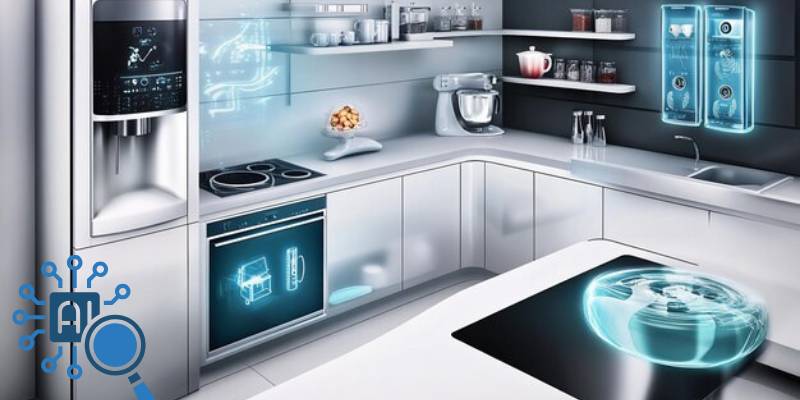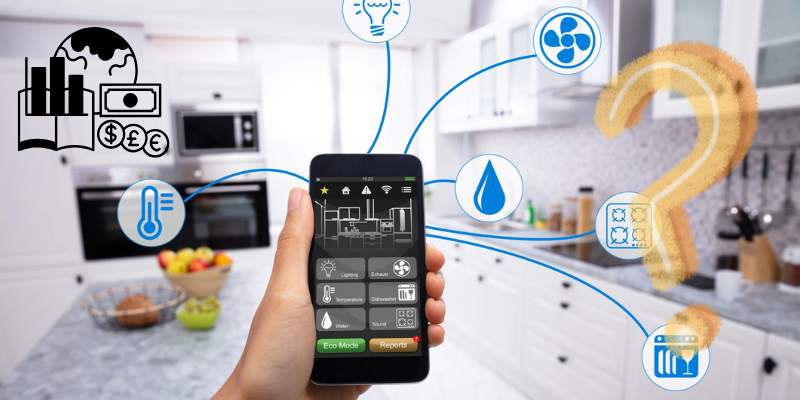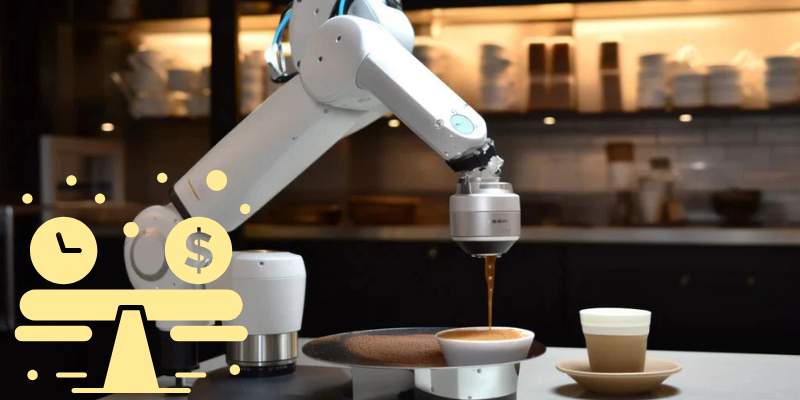When was the last time you stood in front of your dishwasher or washing machine and thought, “Wow, this thing really gets me”? Probably never. For decades, our home appliances have been predictable, reliable, but not exactly… intelligent.
They’ve been machines, not companions. Yet here we are, standing at the cusp of a radical shift: artificial intelligence is sneaking its way into our kitchens and laundry rooms, and it’s changing not just how we cook or clean, but how we live.
But let’s pause here for a moment. Is this just another wave of Energy Hype? Or are we truly seeing a transformation that could redefine our relationship with our most intimate living spaces? That’s the question worth digging into.
The Emotional Core of “Smart” Homes
I’ll admit it: the first time my smart dishwasher sent me a notification that my cycle was done, I felt a little silly thanking it. But that moment revealed something bigger. These appliances aren’t just designed to save time; they’re engineered to slip into our emotional rhythm.
A washer that predicts the best cycle for your stained gym clothes? That’s not just efficiency—it’s empathy in machine form.
We’ve been told for years that AI will free us from drudgery. But anyone who’s ever had to rewash a load because it smelled “off” knows that convenience is about more than automation. It’s about trust.
Can Human trust a machine to make decisions on our behalf, especially when those decisions impact things as personal as what we eat and what we wear? That’s where the emotional tug comes in.
The Numbers Don’t Lie
Before going deeper, let’s ground this in some data. According to Statista, the global market for smart home appliances is expected to reach over $76 billion by 2025, with kitchen and laundry appliances taking up a hefty slice.
Meanwhile, Energy Star reports that AI-powered dishwashers and washing machines can cut energy consumption by up to 30% compared to traditional models.
Numbers aside, the pattern is clear: efficiency and savings attract buyers, but it’s the personalization that keeps people hooked. A dryer that learns how you like your towels—fluffy but not crunchy—becomes more than a gadget. It becomes an extension of your daily routine.
From the Kitchen: Dishwashers, Refrigerators, and Beyond
Think about the humble dishwasher. Once just a water-spraying box, it’s now equipped with AI-driven sensors that listen to the clinking of glasses, adjusting spray pressure to protect delicate stemware.
Some models use computer vision to detect how dirty your dishes actually are. No more guessing whether “heavy soil” really means heavy.
And then there’s Refrigeration. The fridge has long been the quiet hero of the kitchen, humming in the background. Now, AI-enhanced refrigerators can scan barcodes, track expiration dates, and even suggest recipes based on what’s inside.
Imagine opening your fridge and hearing, “You’ve got spinach wilting—want me to line up a smoothie recipe before it goes bad?” Creepy? Maybe. Useful? Absolutely.
What strikes me most is how these appliances move from passive storage devices to active collaborators. They’re no longer just on the Control Side Dark of your kitchen, hidden away. They’re stepping into the light of your daily choices.
The Laundry Room Revolution
Laundry used to be about cycles and timers. You chose “delicate” or “heavy-duty,” pressed start, and hoped for the best. AI has turned that guesswork into something far more tailored. Modern washers now detect fabric types, soil levels, and even the mineral content of your local water supply.
Dryers? They’re learning the difference between “damp” and “perfectly dry,” so you don’t end up with shrunken sweaters.
Here’s where I get a little personal: my AI-enabled washer once pinged me to say the load was unbalanced and suggested I redistribute it.
It didn’t just stop mid-cycle with a vague error code like the old machines—it explained, almost like a helpful friend. I swear I muttered, “Thanks, buddy,” under my breath.
This conversational tone between human and machine is where AI feels less like technology and more like companionship. It’s not flawless—sometimes the feedback is off—but the imperfections almost make it feel more alive.
The Question of Trust
But let’s circle back to a tricky question: how much autonomy do we actually want to give these appliances? A fridge that orders groceries automatically sounds futuristic, but what if it picks the wrong brand of milk? Or worse, what if it keeps reordering kale when you’ve had enough?
The balance between autonomy and control is delicate. Too much AI-driven independence, and we feel out of the loop. Too little, and the tech feels pointless.
Finding that middle ground is where design matters most. It’s where manufacturers must ask not just, “Can this be done?” but, “Should this be done?”
Where Efficiency Meets Empathy
Efficiency is easy to measure: fewer kilowatts, less water, shorter cycles. Empathy is trickier. Can a dishwasher sense the frustration of a busy parent who just needs clean lunchboxes before school? Maybe not literally.
But AI can anticipate needs by learning habits. If the machine notices that you always run a quick wash at 7 p.m., it might suggest a pre-programmed shortcut.
That sense of being understood—even in something as mundane as washing dishes—carries emotional weight. We’re not just saving time; we’re being seen.
The Sustainability Angle
It’s impossible to talk about AI in home appliances without touching on sustainability. According to the International Energy Agency, smart appliances could reduce household electricity demand by up to 15% globally by 2030. That’s not just a utility bill saver; it’s a planetary win.
But here’s the thing: sustainability only works if people actually use these features. Too often, we buy “eco-friendly” settings and then override them because they take too long.
AI has the potential to gently nudge us into better habits without the guilt trip. Imagine your dryer saying, “Hey, if you wait until 9 p.m., your energy will be cheaper and greener.” That’s a nudge I’d actually appreciate.
The Learning Curve (and the Frustrations)
Now, I’d be lying if I said it’s all smooth sailing. AI appliances can be… quirky. I’ve had moments when my fridge app wouldn’t sync, or when my dishwasher insisted on sending “cycle complete” notifications even though I was standing right in front of it. There’s a fine line between helpful and overbearing.
And that raises another point: accessibility. Not everyone wants—or can afford—these high-tech options. There’s a danger that AI-powered appliances widen the gap between households that can embrace them and those that can’t.
If efficiency and sustainability become privileges rather than norms, we’ve missed the point.
Privacy in the Kitchen and Laundry
It sounds almost absurd to talk about “data privacy” with your washer, but think about it. These machines are collecting data: when you do laundry, what foods you store, how often you run cycles. On one hand, it’s benign.
On the other, it’s a digital footprint of your domestic life. Who has access to it? How secure is it?
This is where empathy needs to extend beyond convenience into responsibility. Companies need to treat household data with the same seriousness as financial or medical information. Because at the end of the day, knowing when I wash my socks is part of knowing me.
Future Possibilities
Where could this go? Some futurists predict fully integrated kitchens where AI doesn’t just suggest recipes but actively coordinates your schedule: “Dinner in 45 minutes?
I’ll preheat the oven, defrost the chicken, and start the dishwasher while you cook.” Sounds like sci-fi, but it’s closer than you think.
Laundry rooms may evolve into “fabric care centers,” where AI not only washes but also mends, freshens, and stores clothing. Picture a system that identifies a loose button and notifies you before you even notice it.
That’s not just convenience—it’s extending the lifespan of what we own, tying back to sustainability.
The Human Element
So, back to where we started. Are these machines making life easier, or are they just another layer of complexity? Personally, I think it’s both. There’s undeniable wonder in a fridge that knows my grocery habits.
There’s also undeniable frustration when the Wi-Fi drops and suddenly my “smart” machine feels dumber than the old knob-controlled one my grandmother swore by.
But maybe that’s the beauty of it. These imperfections remind us that AI isn’t magic—it’s a work in progress. It mirrors us, flaws and all. And that makes the relationship between humans and machines feel oddly authentic.
Conclusion: More Than Just Appliances
AI in the kitchen and laundry room isn’t about shiny gadgets or gimmicks. It’s about reimagining our most intimate spaces as places where technology supports—not dictates—our choices.
From dishwashers that understand fragile glassware to dryers that respect your preference for soft towels, the thread running through it all is empathy.
Yes, there will be glitches. Yes, there will be questions about trust, privacy, and cost. But step back, and you see the bigger picture: these machines are slowly weaving themselves into the fabric of our emotional lives.
And whether you’re on board or skeptical, that shift is already happening.
The real question is not just what can these machines do? but what kind of relationship do we want to have with them? That’s a conversation worth having, over dinner perhaps—or while folding laundry that your AI washer just reminded you not to forget.


